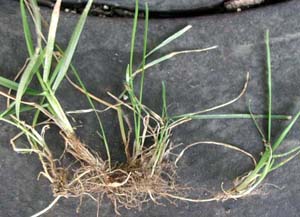78 bar steady 30.03 0mph ENE dew-point 56 Summer, warm and sunny
Waning Gibbous Thunder Moon
A trifecta. In to Minnehaha. Back to Andover. In to Kenwood. Back to Andover. In to Sierra Club and the MIA. Back to Andover. Geez. As I said, I gotta check with my scheduler.
Katarina is an intern from east Germany, Jena. We folded letters and surveys to candidates for Minnesota House races. She’s a bright young lady whose lucky boyfriend lives here. They both study political science and enjoy comparing US and German culture/society. She gave the example of her parents: “They have never worried. They have no debt. They live modestly.” She said her mother was not allowed to finish high school in the old East German regime because her husband was a mathematics professor. If you had an intellengentsia in the home, you also had to have a proletarian. Odd logic, even for Marxists.
After doing the mailing, I called about half a list of candidates who received the survey by e-mail last Friday. This was just a reminder call. Margaret Levin cajoled me into making phone calls and I’m glad she did. It wasn’t so bad. Of course, these were all friendly folk, too.
Across the street from the Sierra Club is the Himalaya, a Nepalese restaurant. It was noon, so I stopped in for steamed dumplings stuffed with yak and a tasty sauce. The next course was a soup with potatoes, black-eyed peas and bamboo shoots. Nan accompanied this dish. Hmmm. I enjoy finding these small ethnic places and sampling cuisine from countries I have not visited. Food is one of the fastest ways into a culture, even faster, because more immediate, than language.
I discussed purchasing a Nepalese thangka with the owner. When I said I would like a Yamatanka, he said, “Oh, you like Yama?” He stuck his tongue out and down, Yama’s typical presentation. “Yes,” I said. “Scary.” I’ll speak with him about it again when I go in to the Sierra Club political committee meeting next Wednesday.
Before I went to the Sierra Club, I stopped at the Northern Clay Center and picked up a small plate. It is my intention, over the next few years, to replace our Portmerion with unmatched pieces from many potters. This is the fifth or sixth acquistion so far.
Each quarter I define a retreat. It can be brief, three days or so, and it can be long, like the stay in Hawai’i. I find I need to punctuate my normal routine with these caesuras or I get stale. This habit began when I was in the ministry and I’ve found it a good carry over, so I’ve continued it. Here’s my retreat for the fall quarter:
7/22/08 No traveling for this retreat. I will take two weeks and stop writing, stop using the internet (except for the blog and e-mail) and study books on novel craft. In this retreat I will create a reading program and a writing program that will guide my work for the next ten years.

